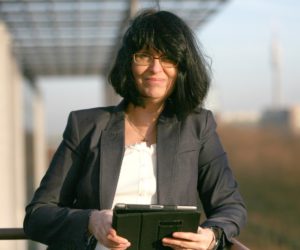- Calls to this hotline are currently being directed to Within Health or Eating Disorder Solutions
- Representatives are standing by 24/7 to help answer your questions
- All calls are confidential and HIPAA compliant
- There is no obligation or cost to call
- Eating Disorder Hope does not receive any commissions or fees dependent upon which provider you select
- Additional treatment providers are located on our directory or samhsa.gov
How to Become an Eating Disorder Specialist Overseas

Eating disorders are a global issue that impacts individuals, families and loved ones across the world. According to the National Eating Disorders Association (NEDA), there are approximately 30 million individuals impacted by these psychiatric illnesses in the United States alone, including anorexia nervosa, bulimia nervosa, and binge eating disorder, with eating disorders on the rise around the globe in both Western and non-Western countries [1].
With a disease that is problematic worldwide and requires professional intervention for treatment, the need for eating disorder specialists across the globe could not be more dire.
Global Need for Eating Disorder Treatment
Some organizations are working tirelessly to address the need for eating disorder awareness, advocacy and treatment around the world, as well as to support the work of professionals who may be located in a place where eating disorder treatment is scarce.
This includes the Academy for Eating Disorders (AED), the International Association of Eating Disorder Professionals (iaedp), and the World Eating Disorders Action Day. In addition, many countries have established their own unique eating disorder organizations that address the need for treatment and support for eating disorder sufferers.
Eating disorder specialists play an important role in connecting individuals who are suffering with the appropriate help and care needed for treatment and recovery.
Whether a physician, registered dietitian, nurse, therapist, psychiatrist, etc., eating disorder specialists have the training and skills needed to identify the earliest signs of eating disorders and the resources needed for treatment.
While there are many resources, trainings, and guidelines to support the eating disorder professional within the United States, this may be more challenging for someone who is working overseas or in a country where resources might be limited.
Working as an Eating Disorder Professional
If you are interested in becoming an eating disorder specialist in your home country and are not sure where to start, consider connecting with the respected organizations mentioned above.
Collaborating with like-minded professionals and having a community of support and resources can give you the direction and guidance needed to pursue your career aspirations, as well as connect with trainings to support your clinical endeavors.
While there may not be specific in-person trainings offered in your country to support the eating disorder professional, you can connect to a wealth of online resources provided by the AED and iaedp, including online webinars on a variety of topics pertaining to the eating disorder professional, Twitter chats, forums, and more.
Thanks to the accessibility of the Internet, more resources are available today than ever before, connecting eating disorder professionals in a profound and powerful way across the globe.
As a member of the AED and iaedp, you also will have the opportunity to attend international conferences that highlight a variety of trainings, advancing the knowledge and experience for eating disorder professionals.
Specialized Trainings for International Eating Disorder Community
For 2017, the AED International Conference on Eating Disorders (ICED) will be held from June 8th to 10th at the Prague Congress Centre in Prague, Czech Republic, giving clinicians and eating disorder specialists around the world the opportunity for specialized training [2]. ICED also offers a day for clinical teaching and research training ahead of the conference for additional support and training.
In addition to the ICED conference, the staff involved with the AED is continuing to work to further its mission and purpose in advancing knowledge and experience of eating disorders around the world.
According to Eva Trujillo, MD, FAED, CEDS, FAAP, Fiaedp, President of the AED, “We are developing plans to deliver education to medical professional teams in parts of the world where expertise on ED is almost non-existent through ‘AED emissaries.’

If you are an eating disorder professional in a part of the world where support or training’s feel scarce, know that you are not alone and important work is being done to expand the eating disorder community internationally. Connecting to and partnering with organizations that support the eating disorder professional can be invaluable to your efforts and professional career.
You may also consider seeking out supervision from a veteran eating disorder professional who can help guide you as you establish your area of specialty in your private practice, treatment center, etc. There is perhaps no better time than now to be part of the international eating disorder community.

Crystal is a Masters-level Registered Dietitian Nutritionist (RDN) with a specialty focus in eating disorders, maternal/child health and wellness, and intuitive eating. Combining clinical experience with a love of social media and writing,
As a Certified Intuitive Eating Counselor, Crystal has dedicated her career to helping others establish a healthy relationship with food and body through her work with EDH and nutrition private practice.
References:
[1]: The National Eating Disorder Association, “Get the Facts on Eating Disorders”, https://www.nationaleatingdisorders.org/get-facts-eating-disorders Accessed 18 May 2017[2]: Academy for Eating Disorders, “ICED Conference”, http://www.aedweb.org/index.php/conference/iced-2017 Accessed 18 May 2017
The opinions and views of our guest contributors are shared to provide a broad perspective of eating disorders. These are not necessarily the views of Eating Disorder Hope, but an effort to offer discussion of various issues by different concerned individuals.
We at Eating Disorder Hope understand that eating disorders result from a combination of environmental and genetic factors. If you or a loved one are suffering from an eating disorder, please know that there is hope for you, and seek immediate professional help.
Published on June 11, 2017.
Reviewed By: Jacquelyn Ekern, MS, LPC on June 11, 2017.
Published on EatingDisorderHope.com

